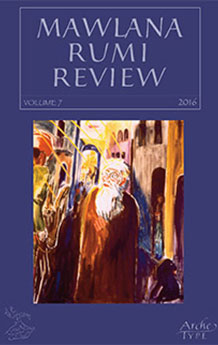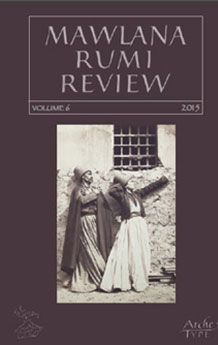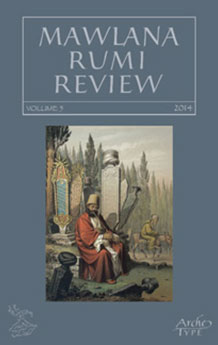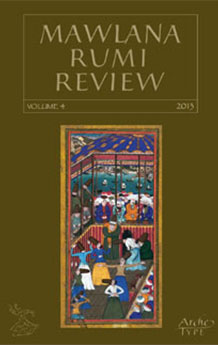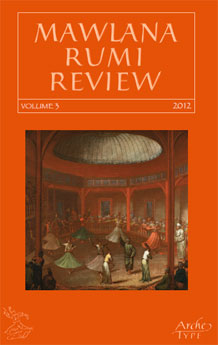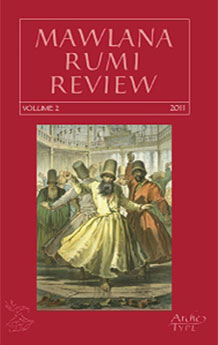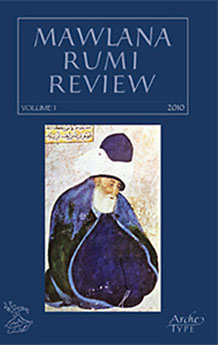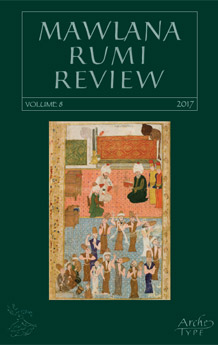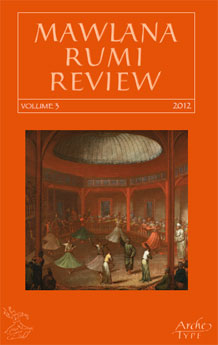Mawlana Rumi Review
Mawlana Rumi Review
The Mawlana Rumi Review is a publication of the Rumi Institute, Near East University, Cyprus, and the Rumi Studies Group of the Institute of Arab and Islamic Studies, University of Exeter, UK.
The Mawlana Rumi Review is an academic review devoted to the life, thought, poetry and legacy of Jalal al-Din Rumi (d. 1273), Islam’s greatest Sufi poet and author of some 60,000 verses composed in the widest variety of metrical patterns ever used by any Persian poet. Rumi's mystical epic the Mathnawi, is, after the Qur’an, probably the most frequently commented-on work in all of Islamic literature. For the past 700 years he has enjoyed continuous celebrity across a number of continents. Over the past three decades, Rumi has also been the best-selling poet in North America, and today he is as famous in India, Iran and Afghanistan as he is in Tajikistan and Turkey (where he is considered to be Turkey’s national poet).
The Mawlana Rumi Review publishes articles, reports, review articles and book reviews in English and French. The editor welcomes articles on Rumi’s art of story-telling, poetic imagery, theology, spiritual psychology, ecumenism, erotic spirituality, pedagogy, hermeneutics, ethics, epistemology, prophetology, metaphysics, and cosmology, as well as on the heritage of Rumi’s thought in modern and medieval literary history and interpretation and commentary on his works such as the Mathnawi and Divan-i Shams-i Tabriz.
The Mawlana Rumi Review was launched at the British Library on 12 May 2010.
Read the news article.
View the video.
Read the review of Mawlana Rumi Review, vol. I (2010) and vol. 2 (2011), by Hassan Lahouti in "Kitab-e Mah va Adabiyat" (1390 A.Hsh./2011); vol. 59, no. 173 (Tehran, Iran)
Read the report in Persian Cyrillic script
View the video about the launch in English
View the video about the launch in Persian
Read a report about the launch on the BBC website in Persian
The Mawlana Rumi Review is edited by Dr Leonard Lewisohn (Senior Lecturer in Persian, IAIS) in coordination with an international team comprising eight Assistant Editors:
Dr. Leili Anvar-Chenderoff, INALCO, France
Roderick Grierson, Near East University, Cyprus
Prof. Fatemeh Keshavarz, University of Maryland, USA
Prof. Franklin Lewis, University of Chicago, USA
Prof. James Morris, Boston College, USA
Dr. Shahram Pazouki, Institute of Philosophy, Iran
Dr. Muhammad Isa Waley, The British Library, UK
Prof. Alan Williams, University of Manchester, UK
The review is served by an Advisory Council consisting of:
Prof. William Chittick, University of Stony Brook, USA
Prof. Carl Ernst, University of North Carolina, USA
Dr. Husayn Muhyiddin Ghomshei, Tehran, Iran
Prof. Bilal Kuşpınar, Necmettin Erbakan University, Konya, Turkey
Prof. Ian Netton, University of Exeter, UK
Dr. Saeed Zarrabi Zadeh, University of Erfurt, Germany
The Poetry Editor is Prof. Paul Losensky, Indiana University
Submissions
All correspondence should be addressed to the Editor:
Dr Leonard Lewisohn
Institute of Arab & Islamic Studies
University of Exeter
Stocker Road
Exeter EX4 4ND
UK
Email: l.lewisohn@exeter.ac.uk.
For General Enquiries about subscription, book reviews and advertisement in the review, please write to the Managing Editor:
Yasin Salazar
119 Charterhouse Street
London EC1M 6AA
UK
Email: ysalazar@matmedia.org
To access the Publisher of the Mawlana Rumi Review, please go to:
Archetype website
Payment and Subscription
Individuals and institutions who wish to purchase back volumes, order multiple copies or subscribe to the Mawlana Rumi Review can access this link:
www.mawlanarumireview.org

